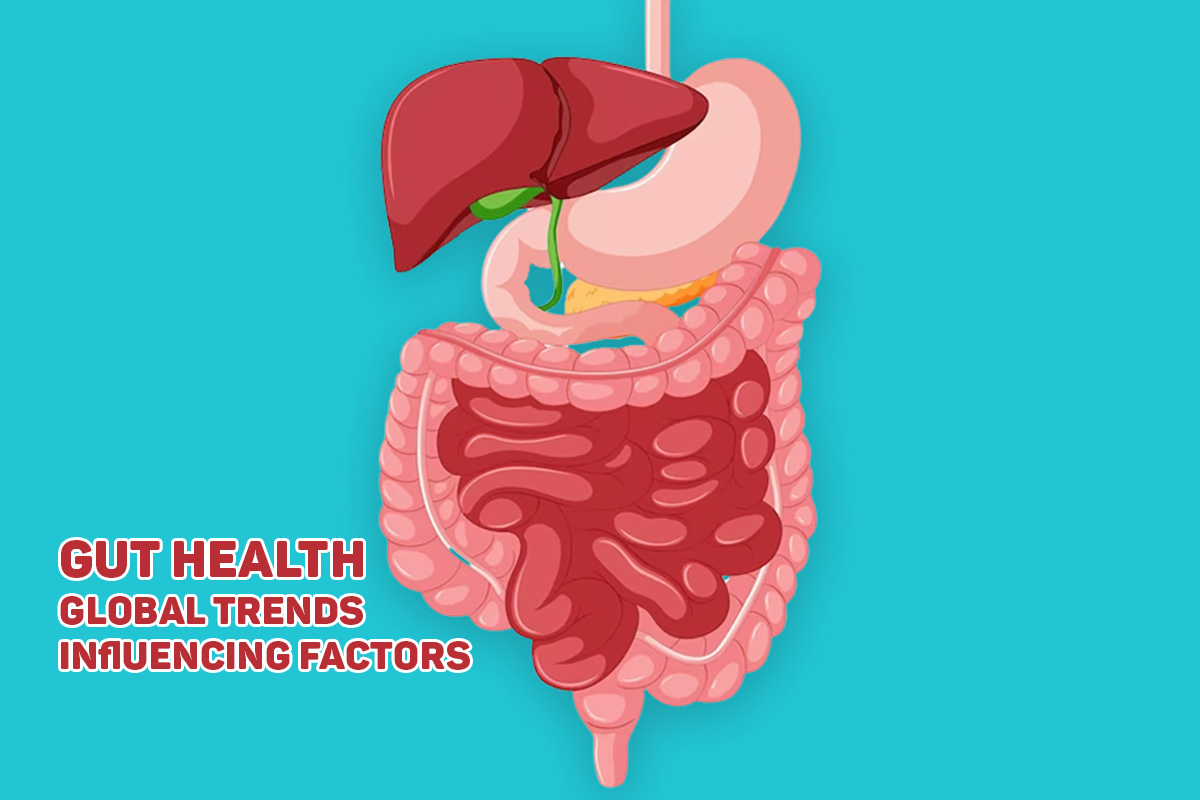Probiotics and gut health are important since these impact on digestion, immune response, and mental health. The human microbiome consists of trillions of microorganisms including bacteria, viruses, and fungi and is influenced by diet, lifestyle, environmental factors and genetics. Identifying why some people are more prone to gut problems than others help to explain the issues affecting gut health throughout the world. In this post we will see how gut health global trends and influencing factors.
Race and Geography: Gut Health Disparities
It has also been established that the health of a person’s gut differs from one race and geographical location to another (Ramos, 2021). IBS, IBD, and other gastrointestinal disorders appear to be more prevalent among Western populations living in the United States and certain parts of Europe. For instance, African Americans have been found to develop IBS and related gut conditions at a higher rate than people from other races in the U.S.A (Nova, 2022). On the other hand, people from East Asian countries like Japan and South Korea are reported to experience few and fewer gut issues. Such population groups consume meals with probiotic products such as kimchi, miso, and natto that extend their positive influence on the gut flora (Nova, 2022). Research has shown that fermented foods provide beneficial probiotics that enhance the gut’s ability to process food, reduce inflammation, and maintain balanced microisolators (He, 2022).
Diets are one of the biggest determinants of gut health, and this fact cannot be downplayed or ignored. The people’s gut health is normally worse in populations that regularly consume foods that are rich in processed foods, sugars, and unhealthy fats. For example, the standard Western diet, which is short on fiber and full of processed foods, is associated with a decline in the population of gut microbes. This leads to higher chances of digestive problems and swollen intestines (Senés-Guerrero, 2020). Fiber is an essential nutrient in promoting gut health as it provides nourishment to good bacteria present in the gut (Merra, 2020). People in those parts of the world like Sub-Saharan Africa and India where people’s diets consist of fruits, vegetables, and legumes do not commonly suffer from gut problems. The presence of fiber in all these diets is beneficial to the gut and helps in countering some ailments like constipation and IBS disease. SAD, which is characterized by a high intake of red meat, sugar and processed grains, fosters inflammation and dysbiosis which is an abnormal growth of gut bacteria. This dietary pattern plays a central role in the rise in cases of various gut disorders noticed among the U.S. population, especially through the intake of fast foods and low-nutrient meals (Merra, 2020).
Weather and Climate and Gut Health
Weather and climate can also affect a person’s gut health but not directly. A cold environment affects the supply of fresh fruits and vegetables thus people in such areas take low fiber and nutrient diets (Senés-Guerrero, 2020). The Mediterranean diet free of refined products and rich in fruits, vegetables, whole grains, olive oil, and fish shows anti-inflammatory effects and includes fibre and omega-3 fatty acids. It has been proved that patients who follow such a diet have fewer ways of developing gut problems and inflammation (Leeuwendaal, 2022).
Lifestyle Factors:
Exercise and Lifestyle choices are very crucial in influencing gut health. Other forms of physical exercise have been shown to enhance the richness of gut microbiota thus boosting digestion and minimizing life-threatening ailments. One must exercise, hence aiding in the stimulation of the gut and the development of the beneficial bacteria (Leeuwendaal, 2022).
Why Some Countries Have Fewer Gut Health Problems: People who consume natural, unprocessed food products have fewer gut problems. For instance, a Japanese native’s diet that comprises fermented foods, fish, and vegetables helps in developing balanced microbiota in the gut (Leeuwendaal, 2022). The addition of probiotics from fermented food such as miso and natto ensures that the environment of the gut is friendly to prevent inflammation and diseases (Stiemsma, 2020). Eating habits have shifted towards the consumption of more fast foods of the Western style in the developing countries resulting in more incidences of gut health complications. Now as the citizens of these nations such as Mexico switch to fast foods in addition to their regular local food, they are experiencing more frequent ailments such as obesity and gut problems. This shift shows an example of how dietary shifts affect the health of the gut (Stiemsma, 2020).

The Importance of Fermented Foods
Another factor that can separate people with a healthy intestinal tract from those with an unhealthy one is the use of sour milk products (Senés-Guerrero, 2020). Among foods like yoghurt, kefir, sauerkraut, and kimchi, all the products include probiotics that maintain the normal intestinal flora. In cultures whose diets include many fermented products, for instance, in South Korea the prevalence of gut-related illnesses is low. Where people in the western countries take fermented foods less, such problems with the digestive system are more likely to occur (Senés-Guerrero, 2020). However, the increased use of probiotics and fermented foods in the Western diet indicates a positive change towards promoting a healthy gut.
| Factor | Region | Statistic | Source |
|---|---|---|---|
| IBS Prevalence | Western Populations | 10-15% of the global population is affected by IBS, with higher rates in the U.S. and Europe | Nova (2022) |
| IBS Prevalence (African Americans) | United States | African Americans experience a higher rate of IBS, with prevalence estimates between 15-20% | Nova (2022) |
| Gut Microbial Diversity (Western Diet) | Western Populations | Western diets are linked to a 30-40% reduction in gut microbial diversity | Senés-Guerrero (2020) |
| Fiber-rich Diet (Gut Health Improvement) | Sub-Saharan Africa, India | Populations with high fiber diets experience significantly lower rates of gastrointestinal disorders | Merra (2020) |
| Fermented Foods & Gut Health | Japan, South Korea | Regular consumption of fermented foods reduces gut inflammation by 25% | He (2022) |
| Gut Disorders in Processed Food Consumers | Global (Western Diet) | Processed food consumption leads to a higher risk of digestive issues and inflammation | Senés-Guerrero (2020) |
| Dietary Shift Impact (Fast Food) | Mexico | Rising fast food consumption in developing countries has resulted in increased gut health complications | Stiemsma (2020) |
| Mediterranean Diet (Gut Health Benefits) | Mediterranean Region | Mediterranean diets, rich in fiber and omega-3, show anti-inflammatory effects and fewer gut problems | Leeuwendaal (2022) |


